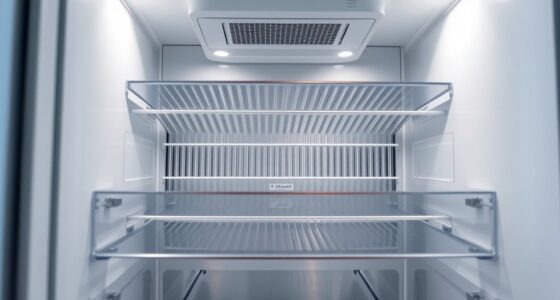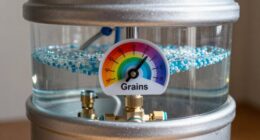Curious to find out which household appliances consume the most energy? Look no further, as we have the data-driven answers you’re looking for.
From refrigerators to air conditioners, washing machines to televisions, and electric water heaters to stoves, we’ll break down which appliances consume the most electricity.
By understanding this information, you can make informed choices to decrease your energy consumption, save money, and reduce your carbon footprint.
So, let’s dive into the world of home appliances and master our energy usage together.

Key Takeaways
- Refrigerators and air conditioners are the home appliances that use the most electricity.
- Upgrading to energy-efficient models can significantly reduce energy consumption and save money on electricity bills.
- Energy-efficient washing machines and televisions can also help in reducing electricity usage and saving money in the long run.
- Electric water heaters are one of the biggest energy consumers in households, and using energy-efficient models and implementing energy-saving measures can help reduce energy consumption.
Refrigerators
Refrigerators consume a significant amount of electricity in our homes. They’re one of the biggest energy consumers among household appliances. In fact, they account for approximately 13% of the total energy usage in an average American household. However, there are ways to make them more energy efficient.
Energy efficient refrigerators have become increasingly popular in recent years. These models are designed to use less electricity while still providing optimal cooling performance. By upgrading to an energy efficient refrigerator, you can significantly reduce your energy consumption and save money on your monthly electricity bills.
Energy efficient refrigerators achieve this by using advanced insulation materials, improved compressors, and smart features like temperature sensors and auto-defrost mechanisms. Additionally, they often come with energy-saving settings such as eco-mode and vacation mode, which further reduce energy consumption during periods of low usage.
Investing in an energy efficient refrigerator not only helps you save on electricity costs but also contributes to a greener and more sustainable future. So, when it comes time to replace your old refrigerator, consider opting for an energy efficient model to minimize your environmental impact and enjoy long-term energy savings.
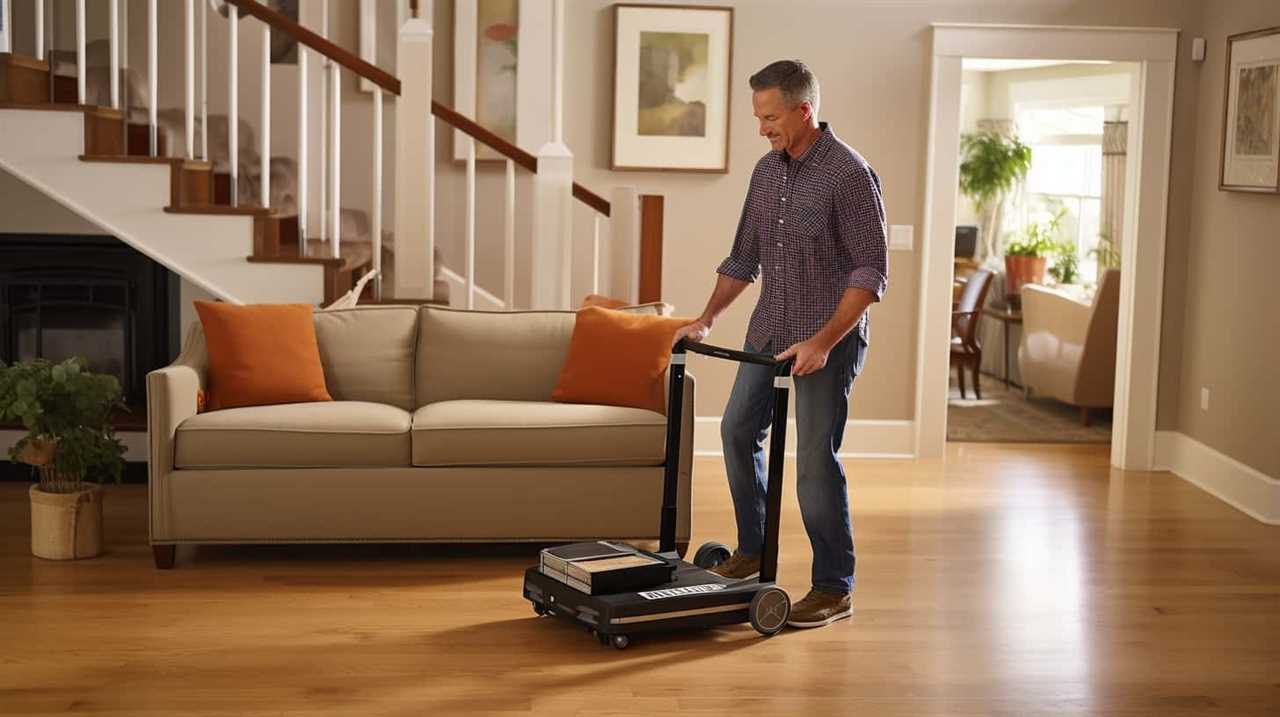
Air Conditioners
Air conditioners are another major electricity consumer in our homes.
To save energy and reduce electricity costs, there are several energy-saving tips and maintenance guidelines that can be followed.
First, it’s important to choose an air conditioner with a high energy efficiency rating. Look for models with the ENERGY STAR label, as they’re designed to consume less electricity.
Additionally, regular maintenance is crucial to keep your air conditioner running efficiently. Clean or replace air filters regularly to ensure proper airflow and reduce strain on the system.

Also, schedule professional maintenance at least once a year to check for any leaks, clean coils, and optimize performance.
Washing Machines
When it comes to home appliances, washing machines are known for their energy consumption.
However, with the advancement in technology, energy-efficient washing machines have become more popular.
These machines are designed to use less electricity while still providing effective cleaning.

Energy-Efficient Washing Machines
We frequently rely on energy-efficient washing machines to efficiently clean our clothes. These appliances not only save us time and effort, but also help reduce our energy consumption.
Here are three key points to consider about energy-efficient washing machines:
- Energy efficiency: Energy-efficient washing machines are designed to use less water and electricity compared to traditional models. They employ advanced technologies such as variable speed motors and sensor-controlled cycles to optimize energy usage.
- Environmental impact: By using less energy and water, energy-efficient washing machines help reduce greenhouse gas emissions and conserve natural resources. They contribute to a greener and more sustainable lifestyle.
- Smart home integration: Many energy-efficient washing machines are compatible with smart home energy management systems. This allows users to monitor and control their washing machine’s energy usage remotely, optimizing efficiency and saving on electricity bills.
Impact on Electricity Bills?
Energy-efficient washing machines can have a significant impact on our electricity bills. By choosing a washing machine with high energy efficiency ratings, we can reduce our electricity consumption and save money in the long run. To better understand the potential savings, let’s take a look at the table below:
| Washing Machine Efficiency Rating | Average Annual Electricity Cost |
|---|---|
| Standard | $100 |
| Energy Efficient | $70 |
| Energy Star Certified | $50 |
As you can see, opting for an energy-efficient washing machine can save you up to $50 on your annual electricity bill compared to a standard machine. To further manage your electricity usage, here are some energy-saving tips:

- Wash full loads to maximize the efficiency of each wash cycle.
- Use cold water whenever possible to reduce energy consumption.
- Consider air-drying your clothes instead of using a dryer.
- Take advantage of delayed start or timer features to run your machine during off-peak hours.
Televisions
When it comes to televisions, it’s important to consider energy-efficient models to minimize power consumption.
By comparing the power ratings of different TV models, consumers can make informed decisions about which ones are more energy-efficient.
This not only helps reduce electricity usage but also saves on energy costs in the long run.
Energy-Efficient TV Models
Our research revealed that televisions with energy-saving features consume significantly less electricity compared to their conventional counterparts. When choosing an energy-efficient TV model, consider the following:
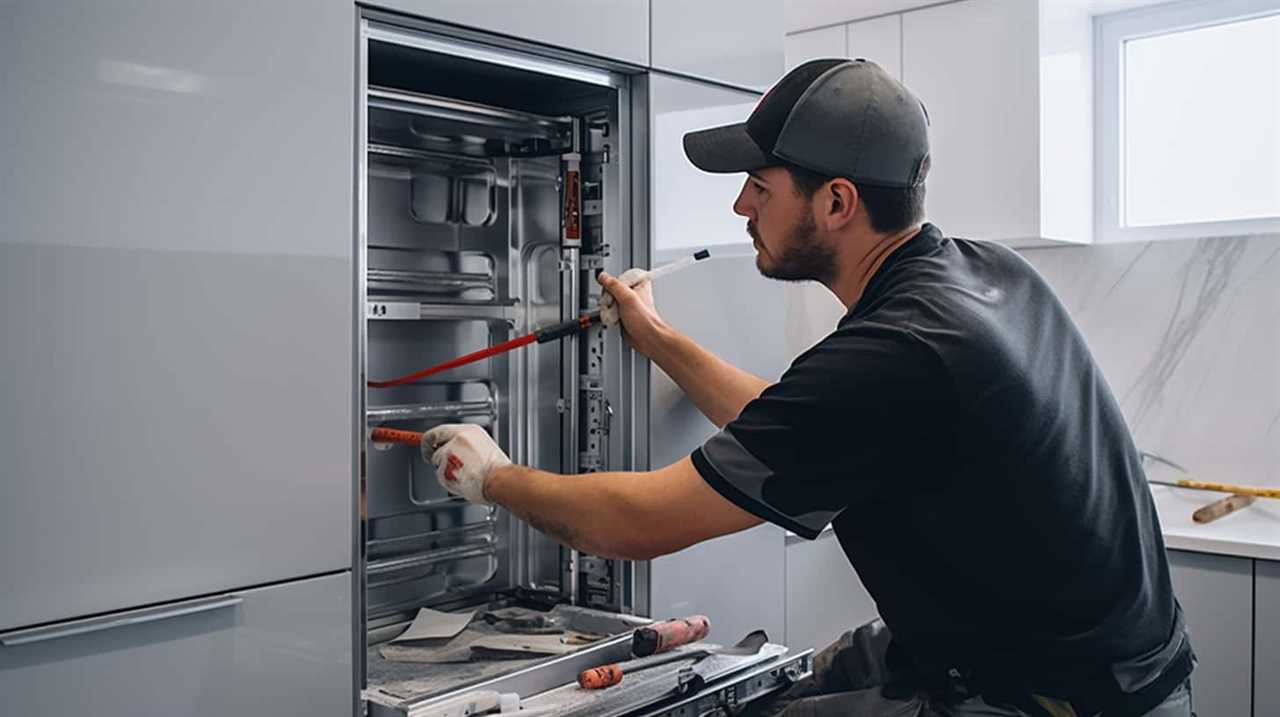
- LED or LCD: LED and LCD TVs are more energy-efficient compared to plasma or CRT models. They use less electricity and produce less heat.
- Energy Star certified: Look for TVs with the Energy Star label. These models meet strict energy efficiency guidelines set by the U.S. Environmental Protection Agency and the Department of Energy.
- Power-saving features: Opt for TVs that have power-saving features such as automatic brightness adjustment, sleep mode, and motion sensor technology. These features help reduce energy consumption when the TV isn’t in use.
By selecting an energy-efficient TV model, you can save on your electricity bill while also reducing your carbon footprint.
Now let’s move on to power consumption comparisons.
Power Consumption Comparisons?
In our research, we compared the power consumption of different television models. We found that LED TVs are generally more energy-efficient compared to plasma or LCD TVs. LED TVs use around 30% less electricity, making them a better choice for energy-conscious consumers.
Additionally, we discovered that larger screen sizes tend to consume more power. So, if you’re looking to reduce your TV’s energy consumption, opting for a smaller screen size can make a significant difference.
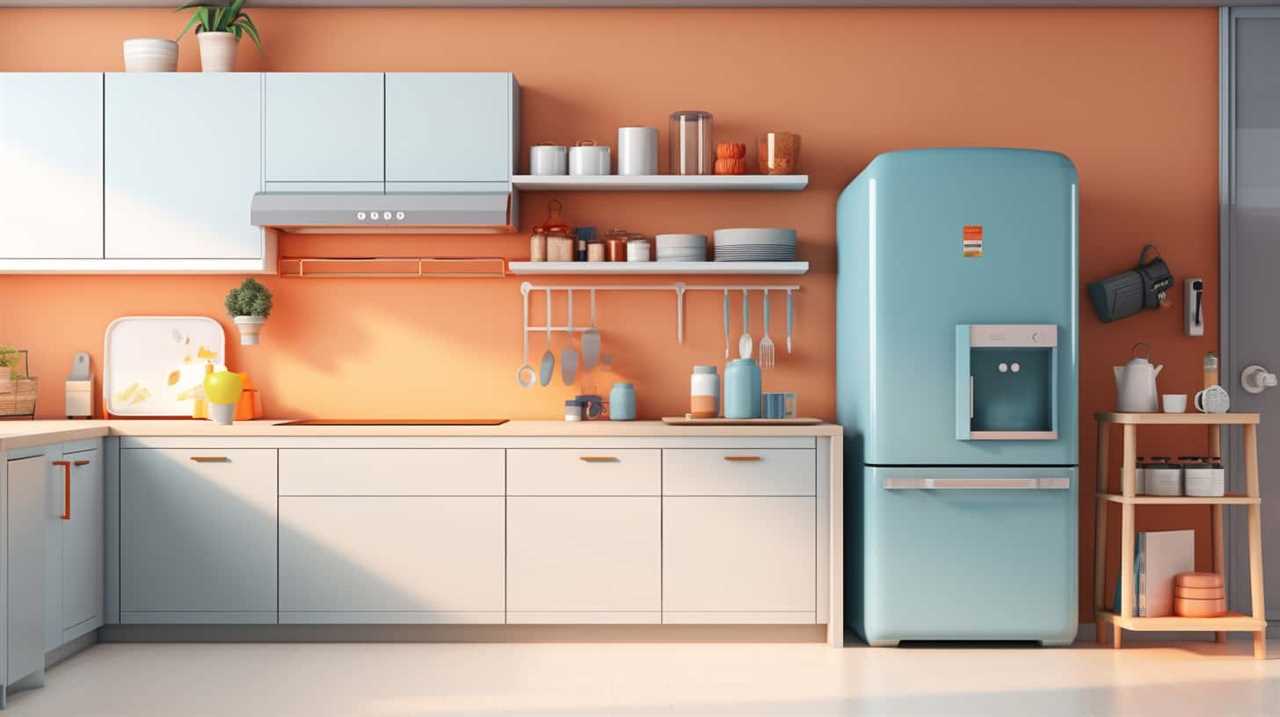
Another tip to save energy is to enable the power-saving mode on your TV, which adjusts the brightness and contrast levels to conserve electricity.
Furthermore, consider using solar panels to power your TV, as this renewable energy source can help reduce your carbon footprint.
Now that we’ve explored power consumption comparisons for televisions, let’s move on to the next section about electric water heaters.
Electric Water Heaters
Electric water heaters consume a significant amount of energy in our homes. To reduce electric water heater costs and improve efficiency, here are three maintenance tips:

- Insulate your water heater: Adding insulation around your electric water heater can help retain heat and reduce energy loss. Insulating the hot water pipes can further minimize heat loss during distribution.
- Lower the thermostat temperature: Most water heaters come with adjustable thermostats. Lowering the temperature to 120 degrees Fahrenheit can save energy without sacrificing comfort.
- Schedule regular maintenance: Periodically check for leaks, sediment buildup, and faulty components. Flushing the tank annually can remove sediments and improve heating efficiency.
Electric Stoves
Let’s dive into the energy usage of electric stoves and how they impact our utility bills.
Electric stoves are a common appliance in many households, and they consume a significant amount of electricity. It’s important to understand how to use them safely and efficiently to minimize energy waste and reduce costs.
When it comes to electric stove safety, always remember to keep flammable materials away and never leave it unattended while cooking. Regular maintenance is also essential to ensure optimal performance and energy efficiency.
Clean the burners and oven regularly, check for any faulty wiring or heating elements, and replace them if needed. By following these safety measures and maintaining your electric stove properly, you can enjoy its convenience while minimizing energy consumption and utility expenses.

Frequently Asked Questions
How Much Electricity Does a Refrigerator Consume in Standby Mode?
In standby mode, a refrigerator consumes a small amount of electricity. However, to further reduce energy consumption, consider using energy efficient lighting options and implementing tips for reducing electricity usage in standby mode.
What Is the Average Lifespan of an Air Conditioner and Does It Affect Its Electricity Consumption?
The average lifespan of an air conditioner can impact its electricity consumption. By properly maintaining and investing in energy efficient air conditioners, we can optimize their performance and reduce overall electricity usage.
Do Front-Loading Washing Machines Use Less Electricity Compared to Top-Loading Machines?
Front-loading washing machines generally use less electricity compared to top-loading machines. Energy consumption varies depending on the specific models, but front-loading machines are known for their efficiency due to their design and water-saving features.
Is There a Significant Difference in Electricity Usage Between LCD and LED Televisions?
LCD televisions are more energy efficient than LED televisions, consuming 20-30% less electricity. The refresh rate of a television does impact electricity usage, with higher refresh rates leading to increased energy consumption.

How Does the Size of an Electric Water Heater Affect Its Electricity Consumption?
Electric water heater efficiency and insulation significantly impact electricity consumption. The size of the electric water heater also affects its energy usage. Understanding these factors can help us make informed decisions about energy-efficient appliances.
Conclusion
In conclusion, when it comes to home appliances, refrigerators, air conditioners, washing machines, televisions, electric water heaters, and electric stoves are among the biggest energy consumers.
It’s important to be mindful of our energy usage and consider more efficient options to reduce our carbon footprint.
By making informed choices and utilizing energy-saving features, we can contribute to a more sustainable future for our planet.




